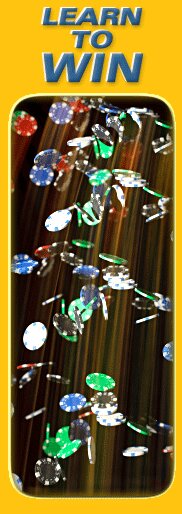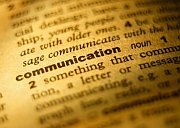Blackjack Games Selection
by Henry Tamburin
In this lesson, we explore the variety of Blackjack Games at Learn to Play Blackjack Program. What should you be looking for before you play blackjack games online or off? Read on and find out.
#1. Don’t play any of the blackjack games that pay 6 to 5 on a blackjack.
The margins on blackjack tables have been steadily declining as players become smarter. So in order to increase their bottom line, casinos have implemented games that pay 6 to 5, instead of the traditional 3 to 2 for an untied player’s blackjack.
Actually the idea of a 6-5 game was brilliant from the casino’s standpoint.
They had made an attempt to improve their margins by implementing gimmicky games, like SuperFun 21, but they had to pay a royalty to the game’s developer which negatively affects their bottom line.
But by making one simple change in payoff they are able to improve their margins without paying any royalties. But how do you get the public to buy-in to a 6-5 game?
Here is brilliant idea #2 – offer it with a single deck game.
Most players remember the old rule of thumb that the fewer the decks, the better the game.
And this was always the case when blackjacks paid the traditional 3-2. So casino managers use the single-deck game as the hook to get players to sit down and play their new single deck game, while they fleece them with the 6-5 payoff on untied blackjacks. Pretty neat, huh?
So what’s the fuss about 6-5 vs. 3-2 because it doesn’t seem like such a big deal, especially when I never get blackjacks anyway? Ahh but you do, you just don’t remember them.
Here’s the low down on 6-5. In order to compare 6-5 with 3-2 you have to convert them to the same lowest common denominator, which happens to be 10.
So a 3-2 payoff is the same as a 15-10 payoff. Likewise a 6-5 payoff is the same as a 12-10 payoff.
Now compare the two: 15-10 vs. 12-10. If you are a $10 bettor, you’ll get paid $12 for an untied blackjack in a 6-5 game and $15 in a 3-2 game, a difference of $3 per blackjack
You’ll average about 4 to 5 blackjacks per hour so playing a 6-5 game will cost you about $12-$15 per hour. This translates to a shameful 1.4% increase in house edge.
The bottom line is avoid playing any 6-5 games. Usually their will be a sign on the table to indicate the 6-5 playoff on blackjack.
Some casinos have the 6-5 payoff imprinted on the layout.
If you are not sure what the payoff for a blackjack is, just ask the dealer.
#2. Don’t Play a blackjack game that uses a Continuous Shuffling Machine (or CSM).
Most players are used to seeing the cards shuffled by the dealer or by an automatic shuffling machine. Although a CSM is an automatic shuffler, it is not the same as traditional automatic shufflers.
Here’s how a CSM works. The CSM is preloaded with either four or five decks of cards. After the dealer completes a round of play, she will load the just played cards back into the CSM where they are randomly mixed with the unplayed decks of cards.
This process doesn’t take long and it’s possible to be dealt a card in the next round that appeared in the previous round.
So when a CSM is used, the cards go round and round, from the table back to the machine. There is never a pause in the action.
From the player’s perspective, every hand dealt from a CSM is like being a dealt a hand from a freshly shuffled deck of cards.
From the casinos perspective, their edge over players remains constant and card counting doesn’t work. And to their delight, they can get about 20% more hands dealt per hour because there is no downtime for shuffling.
So with a CSM, the casinos have converted blackjack games into roulette or slots where they have a house edge against all players all the time.
So what does all this mean for average players? Obviously card counting doesn’t work with a CSM. But that only affects less than a tenth percent of the playing population who are skillful card counters.
No, the problem that affects all players is the 20% more hands dealt per hour or the increased speed of the game when a CSM is used. Because the house has the edge on every hand, the more hands a player plays per hour, the more the player will lose and the more money the casino wins. It’s that simple.
So if you want to lose your money faster, go right ahead and play blackjack with a CSM. If you are a smart player, avoid any table that uses a CSM.
#3. Play only blackjack games with favorable rules
The playing rules, including the number of decks of cards, are not always the same on all tables in a casino. You’ll often find a double deck game with a particular set of rules located next to a 6- or 8-deck game with slightly different rules. So how do you know which game is better?
Here are some guidelines.
If the casino offers a double deck blackjack game, the best rules would be to allow players to double down after pair splitting (DAS) and the dealer must stand on all 17’s including soft 17 (s17).
There should also be no restrictions on doubling down (i.e. you can double down on any initial two card hand).
Unfortunately, this player favorable set of rules are not too common and more than likely you will find DAS with h17 (the dealer must hit soft 17). The latter is OK.
What you want to avoid is a casino that has a double deck game but doesn’t allow DAS, or limits doubling to only hard 10 and 11.
That’s not a good game and you should avoid playing it. Likewise the ideal rules for 6- or 8-deck games are s17, DAS, with either surrender or resplit aces and no doubling restrictions.
Many casinos have switched from s17 to h17 on their 6- and 8-deck games. Given a choice it’s best to play with s17 (the house edge increases about 0.2% with h17 compared to s17).
Do not, however, play any 6 or 8-deck blackjack games where they don’t allow DAS.
So, as you can see, blackjack games selection is very important to your bottom line. Scout the tables, play only those games with good rules, and avoid any 6-5 or CSM games and you’ve taken a big step to improve your game.
Blackjack Games is followed by a lesson about Single Deck play
OR
Return to Learn to Play Blackjack Program
Gambling Teachers Home
GT is attentive about getting the word out about our free programs, lessons and add-ons offered, however, we ask your assistance and consideration in promoting us.
Click link below that reads, "Enjoy this page? Please pay it forward. Here's how..." to add a link to your site, blog or personal page.





